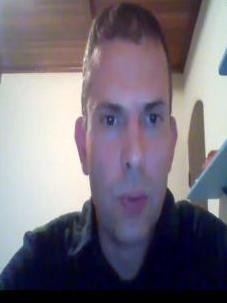Lidar Activities in South America
 Eduardo Landulfo
Eduardo Landulfo
Nuclear and Energy Research Institute, Brazil
Abstract:
South America covers a large area of the globe and plays a fundamental function in its climate change, geographical features, and natural resources. However, it still is a developing area, and natural resource management and energy production are far from a sustainable framework, impacting the air quality of the area and needs much improvement in monitoring. There are significant activities regarding laser remote sensing of the atmosphere at different levels for different purposes. Among these activities, we can mention aerosol tropospheric monitoring at a regional level with support from the Latin American Lidar Network (LALINET), stratospheric monitoring of ozone, and mesospheric probing of sodium measurements, as well as the study of wind and gravity waves. Some of these activities are long-lasting. We intend to pinpoint the most significant scientific achievements and show the potential of carrying out remote sensing activities in the continent and show its correlations with other earth science connections and synergies.
Biography:
Dr. Eduardo Landulfo holds a Bachelor's Degree in Physics from the University of São Paulo (1989), a Master's Degree in Nuclear Technology from the University of São Paulo (1992) and a PhD in Nuclear Technology from the University of São Paulo (1997). Currently, he is a full-time researcher at the Institute for Energy and Nuclear Research (National Nuclear Energy Commission), and professor of post-graduate courses offered to the University of São Paulo. He has previous experience in the area of Nuclear Physics, with emphasis on Gamma Spectroscopy, and since 1997 he has been working in the Geosciences area, with emphasis on Remote Sensing with Lasers, acting mainly on the following themes: dealing, aerosols, remote sensing with lasers and air pollution.
Concepts of Polarization- and Mode-Dependent Gain and Loss in Optical Transmission Systems
 Darli Augusto de Arruda Mello
Darli Augusto de Arruda Mello
The State University of Campinas,Brazil
Abstract:
In space-division multiplexing (SDM) optical systems with coupled channels, spatial modes can experience different gains and losses during propagation. This phenomenon, called mode-dependent gain and loss (MDG and MDL), fundamentally reduces the average system capacity and can cause outages. In this talk we review basic concepts related to MDG and MDL, and understand how this effect becomes a major impairment in future submarine and ultra-long-haul SDM systems. We show that modal diversity and frequency diversity can strongly suppress capacity fluctuations and reduce outage probability, so that the outage capacity approaches the average capacity. We quantify the MDG requirements of optical amplifiers to ensure that the average capacity is close (within a 1-2 dB effective SNR loss) to the theoretical optimum. We show that these MDG requirements are stringent, especially considering the minimum-mean-square error linear equalizers implemented in typical multiple-input multiple-output receivers.
Biography:
Darli Mello studied Electrical Engineering at the RWTH–Aachen, Germany, and at the State University of Campinas (UNICAMP), Brazil, where he graduated in 2000. In 2002 he received the
M. Sc. degree from the Institute for Communications Engineering (LNT) at the Munich University of Technology (TUM), Germany. During his master studies he carried out both experimental and theoretical work at the Siemens research labs in Munich. In 2006 he received the Ph.D. degree from UNICAMP after research stays at the TUM and at the California Institute of Technology (Caltech). After his Ph.D. studies he spent one year with Padtec Optical Components and Systems as a senior technology engineer. From August 2008 to March 2014 he was with the Electrical Engineering Department (ENE) of the University of Brasilia (UnB) as Assistant Professor. Since April 2014 he has been an Assistant Professor at the Communications Department (DECOM) of the School of Electrical and Computer Engineering (FEEC), University of Campinas (Unicamp). From January 2019 to January 2020 he was a visiting scholar at the Ginzton laboratory at Stanford University, working on coupled SDM transmission. His main reseach interests are optical transmission and networking. Darli Mello was TPC member of several conferences, including OFC, ACP, ICC and Globecom. He was the TPC co-chair of SBrT 2011, and of the Optical Communications Subcommittee of LAOP 2016.

